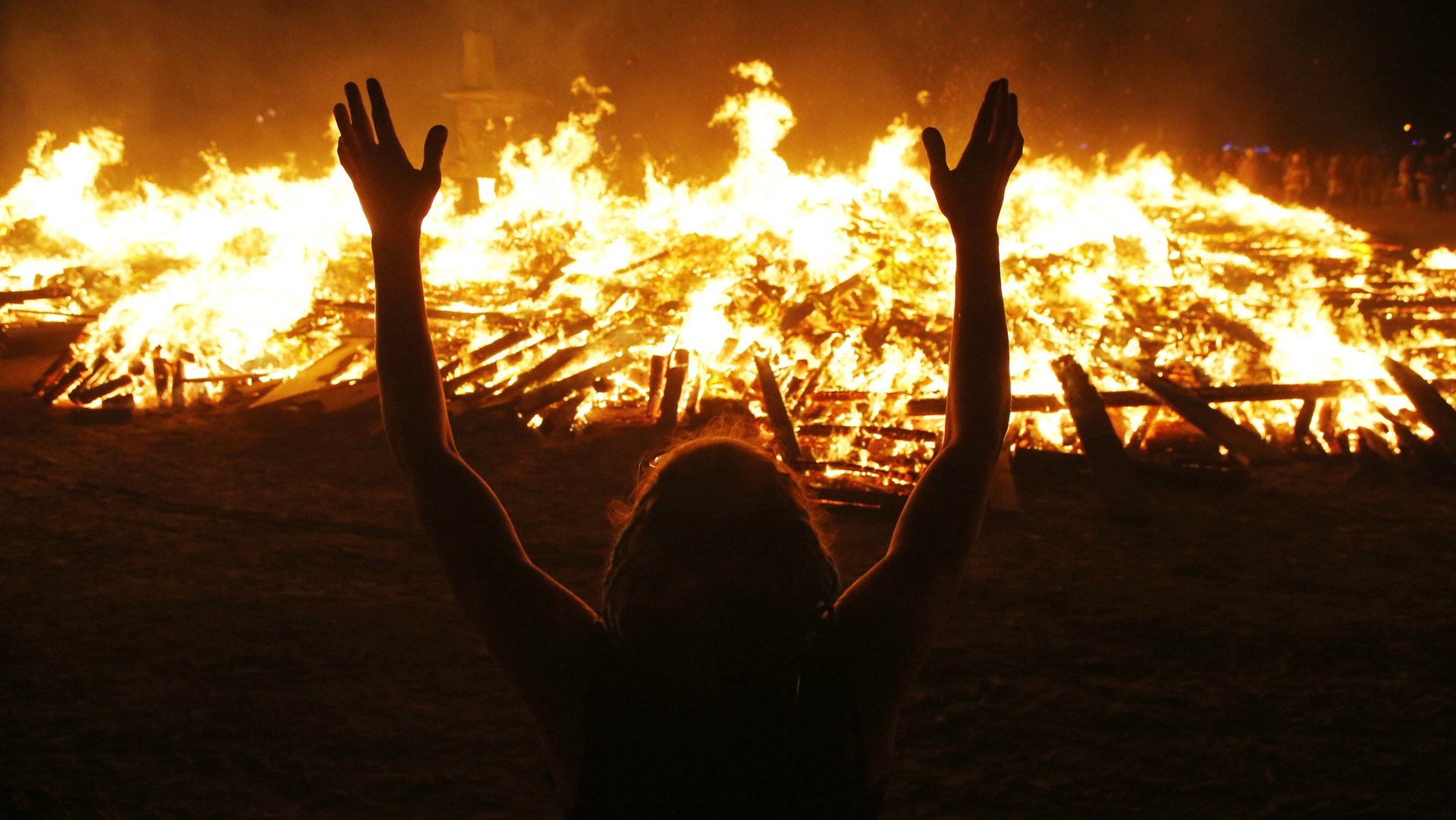The many overlooked benefits of ecstasy
When was the last time you had a truly ecstatic experience? Where your ego dissolved, and your consciousness shifted, and you felt connected to something far bigger than yourself? To many people, that question might feel a little awkward, says Jules Evans, research fellow at Queen Mary University of London’s Centre for the History of Human Emotions. But that’s because we have a long history of marginalizing and pathologizing ecstatic experiences.


When was the last time you had a truly ecstatic experience? Where your ego dissolved, and your consciousness shifted, and you felt connected to something far bigger than yourself? To many people, that question might feel a little awkward, says Jules Evans, research fellow at Queen Mary University of London’s Centre for the History of Human Emotions. But that’s because we have a long history of marginalizing and pathologizing ecstatic experiences.
Our resistance to ecstasy in the West dates back to the Enlightenment period in the 18th century, Evans says, when we shifted from an enchanted to a materialist worldview, and when ecstatic experiences were associated with mental illness. Before then, ecstasy was seen in Christian culture as a way of connecting spiritual forces (both good and bad) to the self. So while ecstasy could be a negative experience and sign of possession, it could also be a connection to God—something that brought healing and inspiration.
Throughout history there have movements that tried to reclaim ecstasy as a positive thing, such as the period of Romanticism or the sexual revolution that took place in the West during the 60s. But there’s still a great deal of wariness around experiencing pure ecstasy today.“We’re frightened of losing control, of being brainwashed, and ending up in a cult,” he says. “We still have quite a troubled relationship [with ecstasy] and there’s still a lot of fear of these experiences. People are very wary of talking about them publicly.”
But this hesitancy is ill-founded, argues Evans, as ecstatic experiences can be a source of spirituality and inspiration, and a necessary part of a balanced life. “We all seek ways to get out of our heads, to go beyond our ordinary ego, and feel a connection to something greater than us,” he says. “Perhaps we think it’s a bit shameful, losing control. But it’s not, it’s a basic human need.”
In an upcoming book on the subject, The Art of Losing Control, Evans describes some of the ways people can seek ecstasy in their daily life. There’s still religion, of course, but there’s also psychedelics, music, festivals, meditation, and spontaneous moments of ecstasy—the kind when you’re walking along and suddenly feel a transcendent shift and great connection to your surroundings.
One of the most common ways people seek ecstasy today is through sex, which Evans argues can indeed be a truly spiritual experience. Many people he surveyed for this book agreed with this assessment. “People talked of feeling as though they’d merged with their partner during sex,” he says. “They went beyond that ordinary sense of ego, that ordinary, self-conscious, anxious self, and felt they’d been taken somewhere else.”
There’s a long history of associating sex with great spiritual moments. For example, Bernini’s 17th-century sculpture,”The Ecstasy of Saint Teresa” shows the saint consumed with the love of God, and looking very much as though she’s having an orgasm.
“When mystics describe their encounters with God, it sounds very sexual,” says Evans. “They talk about melting with bliss and the lord taking them in their arms and kissing them. This led some to think these mystics were just sexually aroused and mistaking this for spiritual ecstasy. There have been alternate thinkers who say maybe sex is something you can use on a spiritual path.”
Of course, sex isn’t always such an ecstatic experience. “In the world of Tinder, it doesn’t always feel that spiritual,” says Evans. “But sex is still the most common way people go beyond their egos and get out of their heads.”
Though Evans explores the value of ecstatic experiences, he also says they shouldn’t dominate life.
“There are two mistakes you can make,” he says. “One is that you’re too afraid of them, so you don’t allow them at all in your life, you’re terrified of letting go of control. The other mistake is that you’re really attached to them, so you’re constantly searching for a high. It’s about finding a place for these experiences in your life.”